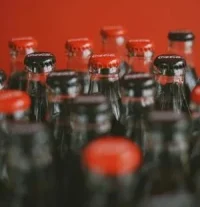-
Indiana has added itself to the list of four states to ban soft drinks and candy from the SNAP, joining Iowa, Nebraska and Texas.
A May 23 press release issued by Indiana Gov. Mike Braun’s office announced that the Department of Agriculture approved Indiana’s waiver to ban soft drinks and candy from Supplemental Nutrition Assistance Program (SNAP) benefits. The ban refers to the broad state definitions of soft drinks and candy.
Approximately 610,000Hoosiers—roughly 9% of Indiana’s population—rely on SNAP benefits for their nutritional needs. According to Braun’s office, “Soda is the number one commodity purchased with SNAP benefits. Purchases of sugary drinks, desserts, and candy exceed the combined sales of fruits and vegetables on SNAP. Children enrolled in SNAP consume 43% more sugary drinks than non-SNAP recipients with similar incomes.”
SNAP recipients—receiving on average $7.57 per day in 2022—do purchase more “sweetened, hedonic food,” according to research by Prof. Dinesh K. Gauri of the University of Arkansas, who called it a complicated issue in need of further study into why. A 2018 article in the National Library of Medicine said, “Most SNAP recipients, because they tend to live in lower-income communities, are exposed to the worst of the US food system: more unhealthy food marketing through traditional and social media, more unhealthy foods in the stores where they regularly shop, and fewer healthy foods that are financially within reach.”
The changes in Indiana’s SNAP will be implemented on Jan. 1, 2026, and will be in place for two years.
“Indiana is proud to lead the way in the Make America Healthy Again agenda by making this common sense move to return the Supplemental Nutrition Assistance Program to its intended purpose: nutrition,” Braun said
The novelty of the new restrictions on SNAP have caused some concern around how retailers will enforce them in stores across the state. But Brooke Rollins, secretary of the U.S Department of Agriculture, wrote a letter to Braun approving the waiver request, noting that the Food and Nutrition Service (FNS) will help to figure out how these changes will impact retailers and customers.
“FNS will continue to collaborate with the state, to finalize data collection points, define key metrics, and outline any necessary data analysis for the quarterly evaluation reports, as well as finalize key implementation parameters such as a threshold standard for retailers,” Rollins said.
“FNS appreciates the state’s willingness to test innovative approaches to support healthy choices, and healthy outcomes to best serve SNAP participants. FNS is committed to working with the state to obtain robust data to inform ways to improve nutrition assistance programs.”
There is still time until the restrictions take place, but a few SNAP recipients at Gleaners Food Pantry at Indianapolis reacted to the news. Carrie Klein, a SNAP user, gave her thoughts on the ban and its potential impact.
“Theft is going to go up because you’re making other people’s life harder,” she said. “It’s not just that you’re banning people from getting certain things on SNAP, you’re causing people to lose their jobs. There are going to be fights or arguments at these department stores and grocery stores. So, why make society even harder? I don’t get it.”
She also said the change adds an extra stress onto parents for holidays and birthdays.
“As far as holidays, even though we’re struggling, we still have to appease the children, and that takes away from them. Because it’s not like adults need birthday cakes. Children look forward to birthdays, holidays and Christmas time. So either way, it’s going to affect children mostly,” said Klein.
Avon High School teacher Violet Moody hopes the ban will help create healthier lifestyles, especially for children.
“I’ve been teaching for 20 years. And I have seen kids just bring pure junk for lunch or this and that. My idea on that is that I think if it was minimized, like you could only do so much junk food, instead of just whatever you want,” Moody said. “Maybe it shouldn’t be an all or nothing type of thing, but I think it’s a great idea.”
Braun’s office noted in the release that the intent of the changes is to increase the use of SNAP for healthier food options, citing the “Make America Healthy Again” movement from Secretary of the U.S. Department of Health and Human Services Robert F. Kennedy Jr.
“I urge every governor across America to follow your lead by signing similar executive orders in their states to improve nutrition standards in SNAP, increase transparency around food dyes and additives, implement physical fitness tests in schools, expand farm-to-school programs, and embrace the full scope of your transformative health agenda. Together, we can Make America Healthy Again,” Kennedy said in Braun’s press release.
Luke Shepherd is a reporter for TheStatehouseFile.com, a news site powered by Franklin College journalism students.





